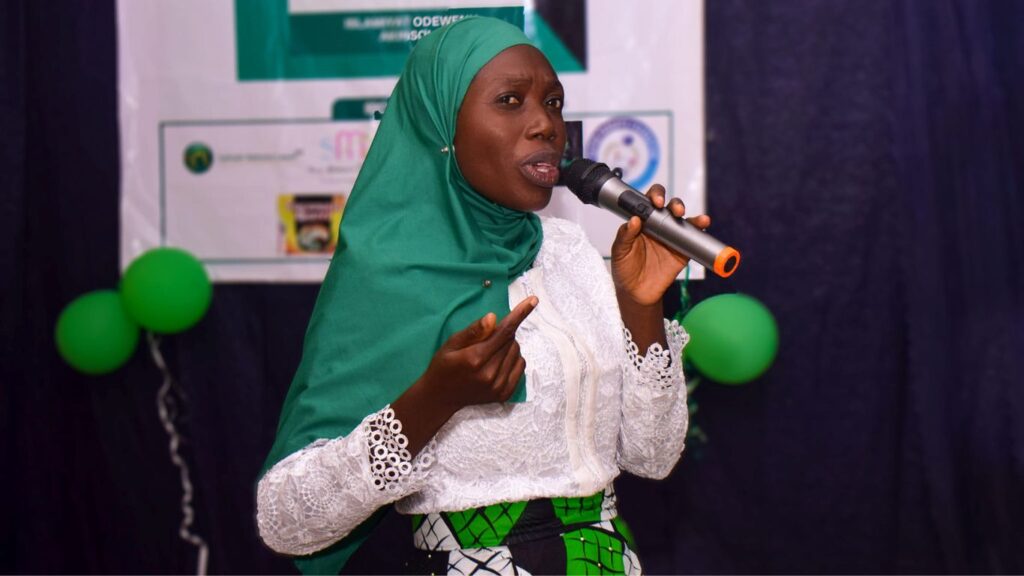The African continent is a place where traditional beliefs are rife. According to divinity scholar Jacob Olupona, about 10% of Africa’s 1.4 billion people are adherents of traditional beliefs. However often than not, these traditional beliefs are intertwined with the more predominant religious beliefs that make up the remaining 90%, making it difficult to draw a line.
There is nothing wrong with traditional beliefs. It is after all a belief system that dates back to the time of ancestors and forefathers of different groups and passed down to generations. The major problem with them is when the beliefs are at odds with science that is backed by fact, evidence and proven research.
This crossroad has led many to believe in the wrong thing and take steps that only brought more problems and more misery. One such happened to Olaitan Akinsola, the mother of Abeedah who lives with Cerebral Palsy.
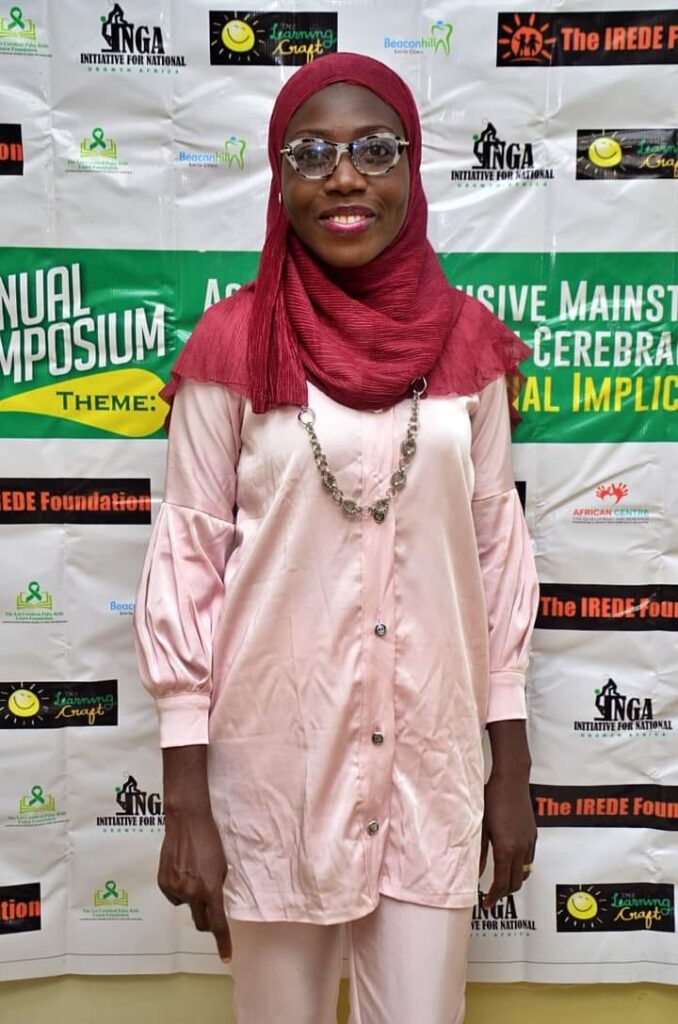
Cerebral Palsy is a neurological condition that affects muscle tones, body movement, posture, vision, and hearing among other things and occurs mostly from birth or at a young age. People with Cerebral Palsy have to deal with complications such as seizures and disorders in speech, feeding, speaking, learning and overall growth. Cerebral Palsy is a life-long condition like many neurological disorders and needs constant medical care and multiple therapy approaches to bring improvements to the existing complications.
Prior to Abeedah’s diagnosis, her mother was concerned she could not yet attain neck control and the ability to sit at the time when a growing child should. This led Olaitan to harbour fetish thoughts in her mind before her daughter was taken for medical assessment.
Some of these beliefs were shaped by watching a lot of Nigerian films which often portray fetish content. A large volume of films in the Nigerian film industry (commonly known as Nollywood) especially the ones done in Yoruba language, Olaitan’s mother tongue, are renowned for such.
“The fetish aspect, it can’t be taken away from the African setting, especially Yoruba setting but it’s just that we need to minimise the way we so much believe in it,” Olaitan began.
“In my own case, before we received my daughter’s diagnosis when she had not attained neck control and sitting, a lot of people believed someone touched her hand and carried her hand with something. It was so terrible that I started looking at the pictures we took at the naming ceremony and was looking for who could have really done that to me. What have I really done wrong to them that could warrant it?
“I was watching too much Africa Magic and I kind of believed it even more because of how Africa Magic has always portrayed these kinds of things that are full of evil.”
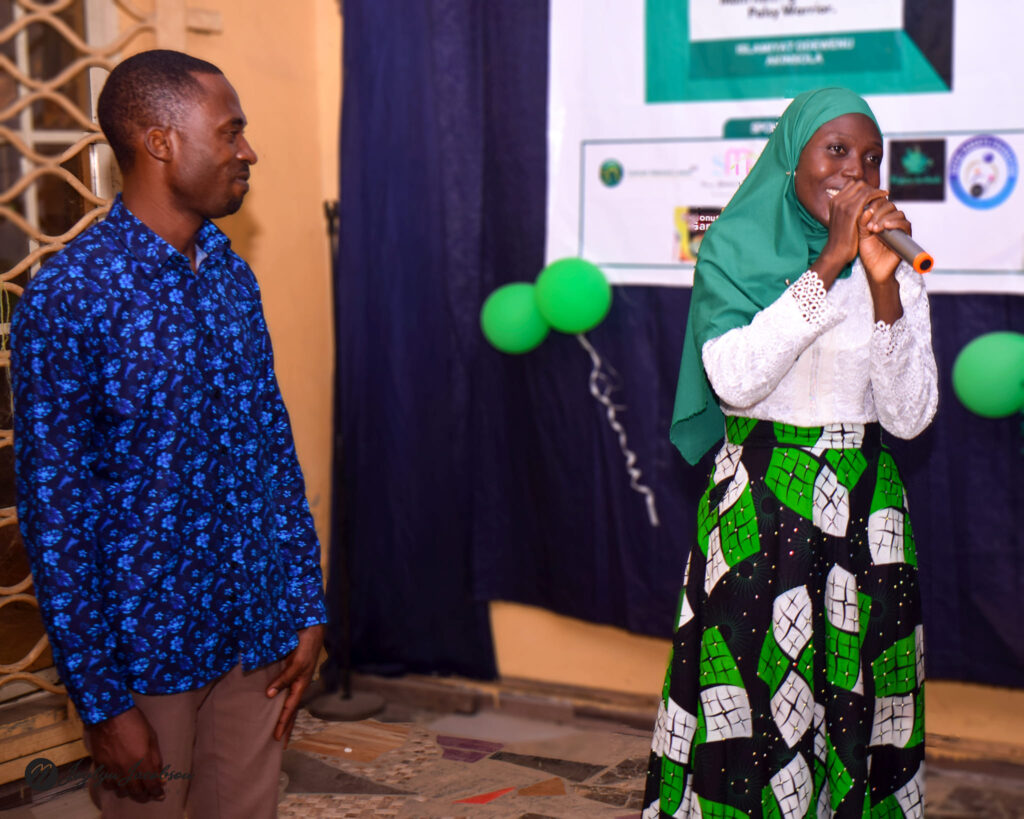
Olaitan went further in feeding her fetish thoughts by visiting white garment churches that are equally renowned for delving into fetish practices. She took more steps by visiting a traditional priest commonly known as ‘Babalawo’ but it was at this point she realised she was being defrauded after paying large sums of money for improvements that never occurred in Abeedah.
“In search of more answers, I was taken to a church, you know all those white garment churches and those ones too, they can deceive. They told us the same thing that someone must have used the wrong hand to carry my baby that’s why should could not attain neck control and we kind of believed them because that was the first time,” Olaitan continued.
“This pastor was just duping us, giving us one anointing oil from the other, gave me a cloth to be used to carry the baby. He gave me all sorts of things and still, it did not work.
“After that, we were still thinking what was wrong with our daughter must be a kind of witchcraft thing and we almost went to an herbalist in Ekiti State. We were supposed to go there but it was what the man said that was an eye-opener for me.
“The man said before we start coming, we should send ₦50,000 which is sort of a consultation fee and also the money will be used to get us things that we will need after explaining my daughter’s condition to him on the phone.
“I now discovered that I was not the only one who was duped or believed in these kinds of things. I have a friend who believed that it was some of her in-laws who were the cause of her son’s disability and she said she paid someone ₦150,000. There was another time she had to buy a big ram and bury the ram alive, you know all sorts of fetish things and still, at the end of the day the child was unable to attain milestones.”
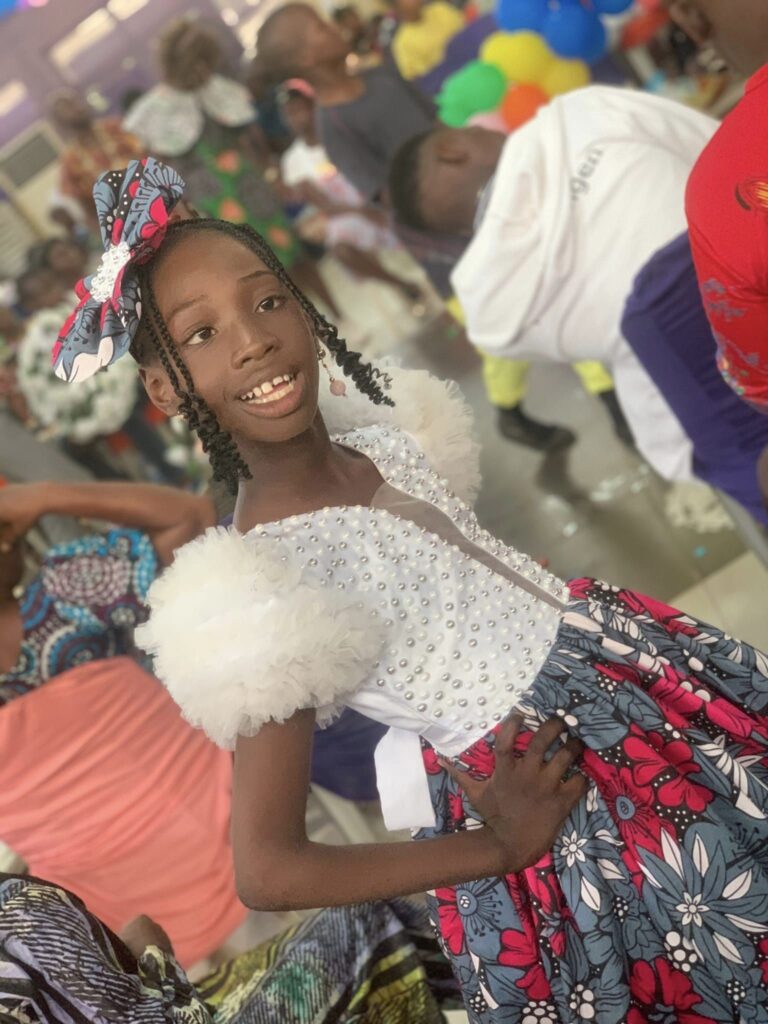
Having been sucked into Nollywood content portraying fetish things and now liberated from it, Olaitan is of the view that the Nigerian film industry is doing more harm than good with these constant portrayals and calls for more educative and enlightening content.
“If only Nollywood had been showing us that these things are not real but just make beliefs, it is not happening, rather we go to the hospital, we would have known where to look for the solution,” she explained.
“And the most annoying part about Nollywood is that sometimes someone will be sick and the doctors will address them in the movie that the person should go and consult the herbalist that it is not something they can do. All those things have made people believe that indeed all these things are real. I’m not saying they are not real but the way Nollywood is propagating it is uncalled for.
“I think I have only seen a movie on Nollywood that talked about Down Syndrome and the child was taken to hospital for proper evaluation but it was a sponsored movie by an NGO. If not for that, we would still be believing that an Autistic child is a mad child, a child is living with Cerebral Palsy because the parents refused to eat frogs, lizards and so on and so forth. That is what Nollywood has made us believe and that is why I said I would not be watching Nollywood films again.”
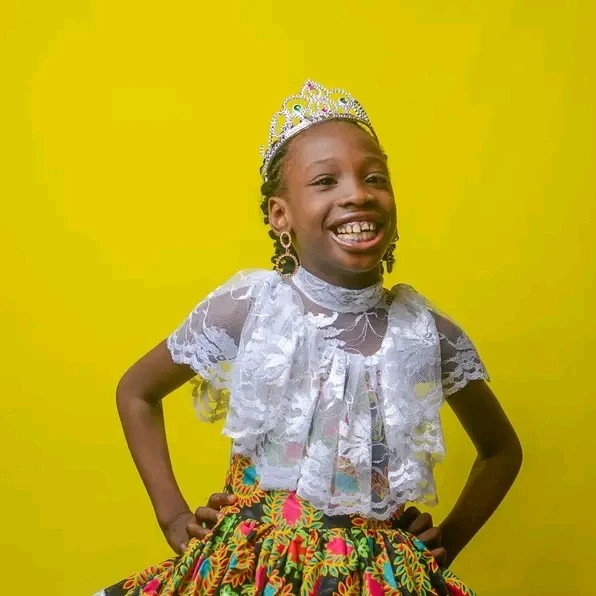
Olaitan now prefers to watch Indian films as she finds it more enlightening especially those portraying children living with special needs and how they are celebrated. She has also authored a book titled: My New Normal: The Journey of a First Time Mom Raising a Cerebral Palsy Warrior.
“My mental health is important to me, I would rather watch Indian movies now because I learn a lot from them, I watched an Indian movie on Cerebral Palsy, and I’ve watched one on Autism,” she stated.
“I can name virtually all the ailments and forms of disability that Indians have portrayed in their movies and these children are being celebrated. They end up being the best.
“That’s the kind of society we want, that’s the kind of thing we want to portray. So, I would rather settle for Indian movies, and learn more from them rather than watching Nollywood which would be making me look for witches and wizards where none exists.”
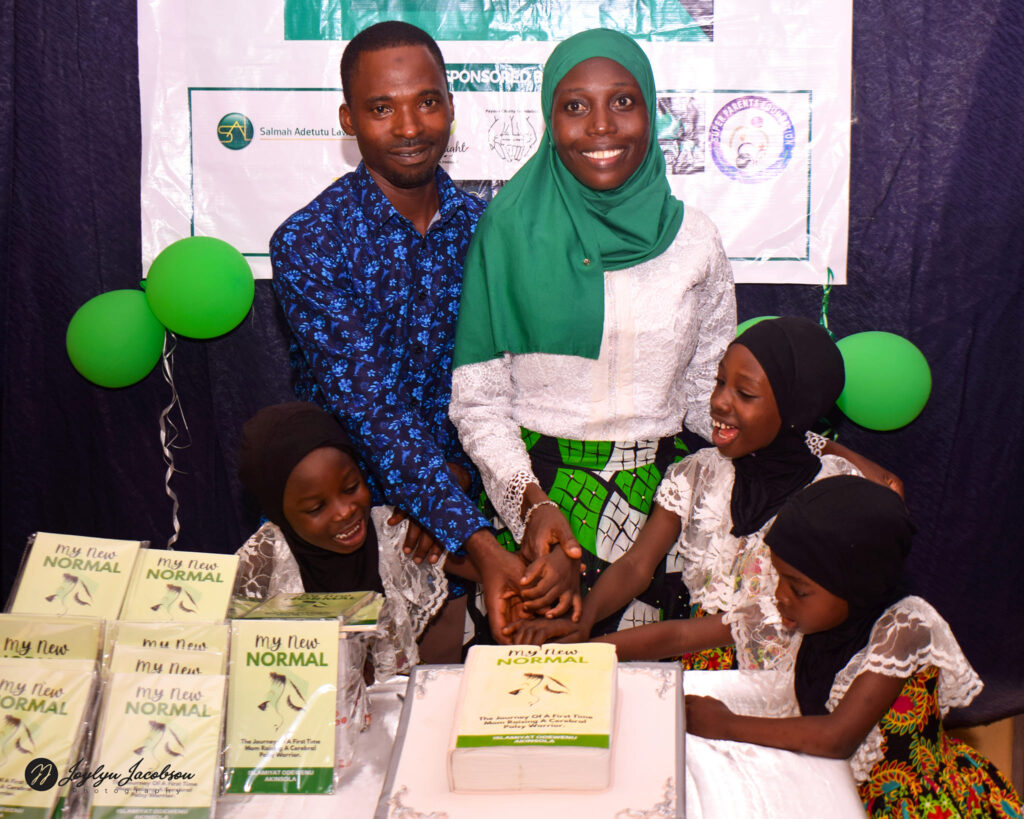
Indeed, Olaitan’s shift in orientation has made Abeedah become a celebrated champion. The eight-year-old is thriving health-wise with improvements in her speech, movement, coordination and learning. She is also a fashion model, becoming the first African child with Cerebral Palsy to become a model at the age of eight. Abeedah has two amazing younger sisters named Ameedah and Habeebah who are always ready to defend her and a very supportive father.
View this post on Instagram
There clearly needs to be more advocacy and enlightenment in rooting out fetish beliefs about people living with disabilities. Folusho Liasu, a lawyer by trade and founder and president of Super Parents Foundation, a non-governmental organisation that helps parents of children with special needs to access essential information and other essential resources that assist them to cope better with their children, thinks there is progress in this area but more can definitely be done.
“Well, there is progress. It is still not enough but there is progress. We are not yet there but we are getting there which is great,” Liasu said.
“Before it was hard to even hear of people advocating for children with disabilities but we have a lot of people now being empathetic and advocating for children with disabilities, even if they don’t have relatives or children that have disabilities. That means there is progress. It is a step in the right direction as people lend their voices to this cause. It is definitely going to get better.
“There will always be stereotypes, it is not only in Africa, it’s all over the world but it’s just that it is a progressive stage over there [in the developed world] but like I said, we are getting there over here.
“We have to deal with our own system from the home to the government to the private sector, everybody needs to be involved, and no sector should be left out. Advocacy should be preached everywhere. It is not just talking about it but there must be action like putting ramps in all public buildings. When there is policy that aids advocacy, empathy and all that, things will definitely get better.”
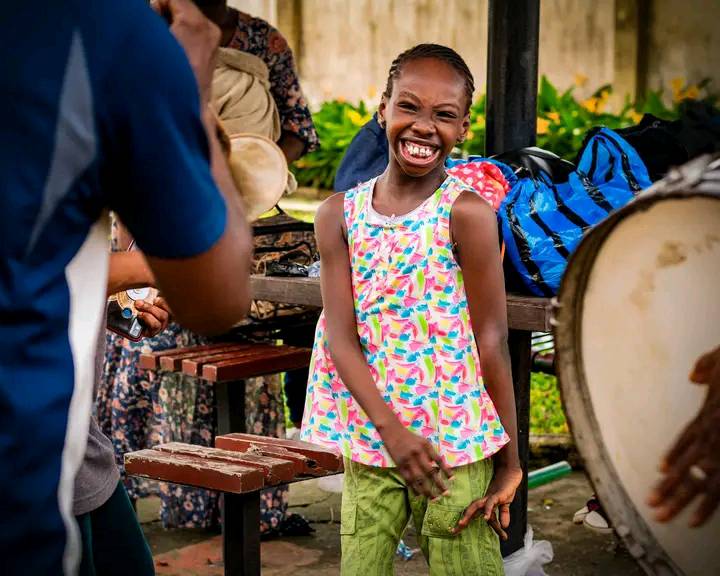
Folusho concluded with an encouraging message for special needs children: “Hang on to hope. You’re special, you are royalty and you can be whatever you want to be. It is about your mind not your body. Once you set your mind to do it, you will get there. Fight for your rights and you are going to get to places unimaginable.”
Olaitan can be reached via:
Facebook: Odewenu Akinsola Islamiyat Olaitan
Instagram: @olaitanakinsola
Telephone:/WhatsApp: +234 (0) 803 729 7869
Abeedah’s Instagram: @abeedahakinsola
Parents looking for support for their special needs children can reach out to Super Parents Foundation via:
Facebook: Super Parents Support Foundation
Instagram: @superparentsfoundation
X (formerly Twitter): @ParentsSuper
YouTube: Super Parents Foundation
Email: info@superparentsfoundation.org
Website: https://www.superparentsfoundation.org

